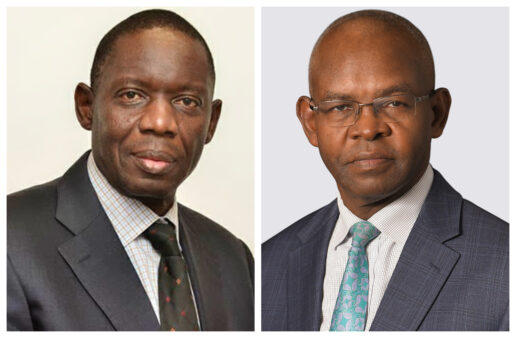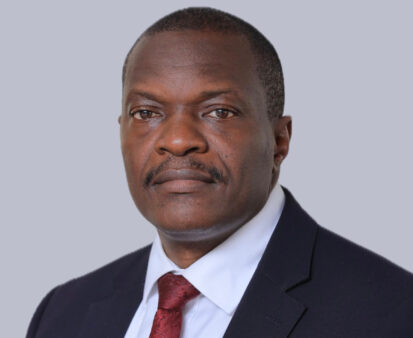It all started with a call from a recruitment agency executive.
At the time, Thambi had spent 30 years in the banking industry, rising to become a Senior Vice President and Head of Retail Banking at India’s IndusInd Bank, based in Mumbai, Maharashtra. In that role, he oversaw more than 300 branches and was No.4 in the bank’s overall order of command.
He had risen from a teller job that he started on November 19, 1976, with manual banking ledgers and had risen to become a branch manager at Dhanlaxmi Bank in Hyderabad, India before crossing over to IndusInd Bank in April 1995.
Just before agreeing to sit for the interview with DTB’s Group CEO, Ms. Nasim Devji at Mumbai’s Taj Hotel, in November 2006, he had turned down another opportunity to work in Kenya.
“This is the Aga Khan, Group,” the recruitment agent told him.
But Thambi says, that didn’t move him a lot, because he didn’t know much about the Aga Khan group at the time. Even when the recruiting agency sent him the company profile and media articles about the vast global economic interests of the Aga Khan empire, that didn’t move him much.
But he eventually agreed to meet the DTB Group CEO for what he says was more of a frank conversation and less of a job interview, because deep inside he knew he wasn’t exactly looking for a job.
“Because I knew I wasn’t desperate for a job, I wasn’t on tension, so I talked freely. I was honest. I wasn’t tense,” he told the CEO East Africa Magazine in an interview.
When it came to question time, he had only one major burning question:
“I asked the CEO that, the total business of the bank in Uganda where I am going to be, is equivalent to just one of my branches. According to the IndusInd Bank leadership structure, I am in the No.4 position. Why should I accept the position that you are offering me?”, he asked Ms. Nasim Devji.
At the time, DTB had only one branch in Uganda.
The DTB Group CEO told him: “In Uganda, you will be in the topmost position. It is your responsibility to make this small bank into the biggest bank, as per your dream. We will do everything it takes to support you”.
Thambi, according to Nasim Devji, passed the interview “with flying colours”.
“I found that interesting,” recalls Thambi, but even then it took him about four months of thought.

“Neither was I accepting the offer, nor rejecting it,” he recalls.
During this time he was consulting his household as well. The children were very much against the idea of their dad moving to Africa, a continent they had never been to, but had heard and read unpleasant things about.
“But my wife told me, “You pray and whatever you feel, I am with you”. But the children were very upset,” he adds.
“I take all my major decisions after prayer⏤ because on earth, we are nothing without God. We are his pawns. He moves us as he pleases and according to his plan. At the end of my prayer, I got a very strong feeling that I must go. That is when I confirmed that I was coming to Uganda,” Thambi vividly recalls.
“The salary and my other remuneration in Uganda was nothing comparable to what I was getting in India. But God told me, you go”.
And off he went to Uganda to start what would be a 17-year rewarding experience.
A few days into Uganda, Thambi and his wife Tabitha were touched by the warmness of the Ugandan people.
“I will tell you a very small story about one of our highlights as a family in Uganda. When me and my wife had just come, the first Sunday we went to Christ the King Church. We found the church already full and had to stand outside. The mass hadn’t even started, when one lady came to us and asked us to come in. They squeezed a seat for us and we enjoyed our first Mass in Uganda. After returning from Church, my wife was so shocked about how humble and polite Ugandan people are. It is then that I knew I would enjoy my time in Uganda,” Thambi narrates.
Getting down to business
“Bank of Uganda approved me as Managing Director and CEO of DTB Uganda on July 11, 2007, which happened to be the Golden Jubilee day of His Highness the Aga Khan, a pleasant coincidence and surprise to me; Nasim used to call me Golden Jubilee boy,” he recalls.
At the time, the Bank had only two branches⏤the Head Office branch and another in the busy Kikuubo shopping hub in downtown Kampala.
“My primary tasks were to create a strong DTB brand and to spread the wings of the Bank across Uganda and we did a good job. I started expanding with a new branch in Old Kampala, then Wandegeya, Kitintale and Sixth Street Industrial Area. Jinja was our first upcountry branch. Then in 2009 alone, we opened 12 branches. That was our fastest expansion,” he proudly recalls, adding: “The branch network peaked at 44 and then we had to merge 7 branches at some point. Currently, there are 37 branches, 940 Agent Banking locations over 700 Point-of-sale merchants across Uganda to support customers”.
“Our first solid achievement as Team DTB in 2007 was the URA Tax collection partnership, which later brought the Bank to No. 2 among all banks, in the number of URA transactions. Most importantly, URA continued to recognise DTB year after year including the latest award as the Most Compliant Bank in URA Collection for the year 2023. Let me take this opportunity to thank Ms. Allen Kagina who was instrumental in getting the URA partnership with DTB which was further accelerated by the previous Commissioner General Ms Doris Akol and the present Commissioner General Mr. John Musinguzi Rujoki,” Thambi told stakeholders gathered at his farewell dinner.
He also rooted for the installation of ATMs at a time when not so many banks had embraced digitalisation.
“Our third milestone was redefining banking hours in Uganda. DTB was the first Bank in Uganda to commence 12-hour Banking from 8 am to 8 pm and 7-day Banking in 2008, for a unique customer experience,” he says.
He also says that DTB was the first bank to set up dedicated counters for National Water Bills collection.
“I still remember my first meeting with Dr. William Muhairwe, the then MD of NWSC who agreed to my suggestion to handle cash by Banks and Water supply by NWSC in our first meeting. Later, we engaged with UMEME for bill collection. Let me take this opportunity to thank the key person responsible for that partnership, Mr.Selestino Babungi, the present Managing Director, who was the CFO in those days,” Thambi says.
Thambi, being the excellent salesperson that he is, also targeted key influential business communities in Uganda such as the Indian Community, Chinese community, South Korean community, Dawoodi Bohra community as well as the Pakistan community and won them over to the bank.
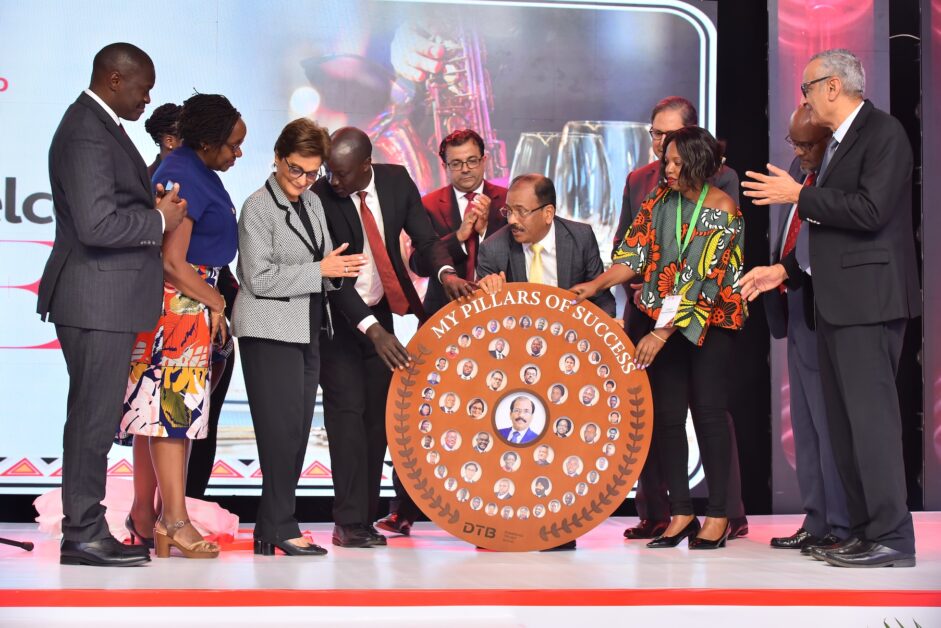
Government business was also top on his agenda. He entered into partnerships to establish ‘in-house collection offices’ with Uganda Investment Authority (UIA), Uganda Revenue Authority (URA), Uganda Registration Services Bureau (URS, National Identification and Registration Authority (NIRA) and the Lands Office in Kampala and Wakiso. In support of the Government’s “ Buy Uganda; Build Uganda” agenda, DTB also opened branches at all the major Industrial parks such as the Kampala Industrial Business Park Namanve, Lao Shen Industrial Park at Kapeeka and Sino-Uganda Industrial Park, Mbale.
Financial and 40-fold business growth
With footprint expansion and product innovations came growth and prosperity.
In the 17 years he has been at the bank, total assets grew by a Compounded Annual Growth Rate (CAGR) of 26% from UGX 76 billion to UGX 3 trillion at the end of 2023. That is a growth of nearly 40 times.
In the same period, total customer deposits grew by a CAGR of 25% from UGX 60 billion to UGX 2.21 trillion.
The total performing loan book grew by a CAGR of 21% from UGX 39 billion to UGX 879 billion.
The bank had a capital base of UGX 11 billion in 2007, but this has since now multiplied over 26 times to UGX 290 billion excluding the capital injection by shareholders.
During this period, the Bank has paid about UGX 161 billion as income taxes to the country.
“When we look back, DTB was one of the lowest banks in industry market share of just 0.65% in most of the parameters with a ranking of 12 out of 13 banks in 2007. Now DTB’s market share has grown up to 6.5%, with rankings ranging from 6 to 8 out of 25 Commercial Banks operating in Uganda,” he says, adding: “The contribution of profit by DTB Uganda to the DTB Group has moved from a negligible 3% to 20% as per the latest financials published.
The number of staff has also grown from 60, out of which about 88% were Ugandans, to 680 staff out of which 99% are Ugandans. 100% of all 37 branch managers are Ugandans.
Godfrey Sebaana, the incoming CEO is also Ugandan.
56% of all DTB Uganda staff are women⏤ the highest rate in the banking industry according to Thambi. The Bank was the recipient of several awards including the Best Innovative Bancassurance Agent by IRA, UN Gold Gender Seal Award, Digital Banking awards, People Choice Awards, and Public Opinion awards among others.
“Credit for all these achievements goes to the vibrant Board of DTB Uganda and the entire Team DTB. I want to say a big thank you to the Exco team, for believing in me and for their commitment; we faced all the challenges, and supported each other, with a word of prayer. We never started a new year without prayers of all beliefs, and we never closed any year without a Thanksgiving service. DTB’s growth is an excellent example of God’s blessings throughout and we could win over evils as most of you know and by protecting the Bank from major frauds rampant in the industry,” Thambi reiterates.
“Let me record my utmost gratitude to the DTB Group functional heads in Kenya, who tirelessly supported the Uganda team 24/7. The DTB staff are a wonderful group of vibrant, talented, dedicated, connected and active team, who work, without looking at the Clock. Working with all of you has been one of the most fulfilling experiences of my career. A BIG Thank you to each one of you,” he emotionally says, adding: “As a team, we were hungry for business and our beloved customers supported us to their best even during testing times; let me express my sincere gratitude to all the customers and other stakeholders for your consistent support”.
Lessons learnt and God’s blessings
During the 17 years, Thambi has worked with and learnt from over 100 CEOs in the banking industry, 3 Directors of Commercial Banking at BOU; 2 BoU Executive Directors of Supervision; 3 Deputy Governors; 1 substantive Governor and 3 DTBU Board Chairpersons. At the industry level, he served as the Hon Treasurer of the Uganda Bankers Association, as a member of the BOU-UBA Technical Committee and as the Coordinating CEO for the Uganda Bankers Association Anti-fraud Committee. He also worked as a Board member of the Uganda Banking and Financial Services from 2008 to 2014.

He admits that his 17-year journey has not been a smooth road only, but has also been with “lots of ups and downs” and “murram roads with lot of potholes’, but he believes he leaves the bank on “the airstrip”.
“My successor Godfrey Sebaana is in the cockpit now to take the DTB aircraft to greater heights in the coming years. Mr.Godfrey Sebaana is a perfect substitute to replace me. He joined at an age about 5 years less compared to my joining age at DTB; so ideally he should retire after the next 22 years. I wish him the very best and also request all the customers to grow with DTB by extending him full support,” Thambi quips.
On what has kept him sane and seen him through these rough patches, Thambi is quick to say, it has been by God’s grace and a supportive staff and board.
“I’m telling you where I am today, it has been God’s blessings⏤ continuous blessings. God has allowed me to do something which I have done and I have done my part,” Thambi says, adding: “During my journey, I have faced some challenges, threats, blackmailing and many other situations of pressure, But if I stood strong, that was because of Jesus Christ who enabled me to make it.”
He tells of a Catholic Charismatic Retreat, in Kerala, India that he attended when he was 26 years old that forever changed his life and outlook on conflict management.
“When the main celebrant, the priest, started preaching, he said something that at first didn’t make sense but now makes all the sense. Before he started preaching, he asked for a moment of silence and asked us to think about all those people who have hurt us in the present and past⏤ parents, friends, colleagues etc. After the brief moment of silence, he told us that whatever number they were, we should dedicate the day’s mass to their forgiveness and wellbeing, not our wellbeing,” Thambi recalls.
“That was a turning point. Many of us were in tears after. After that mass; from that moment onwards, my life never became the same again. I can give a testimony that after that prayer, I have had no enemies. That prayer has a very strange power. If you have not tried it, you should try it. In life, many people will hurt you, with their actions and or words, but the moment you pray for them for 5-10 minutes, your life will never be the same,” he emphasises.
He also says he never looked at other banks as his competitors but rather as co-players in the game.
“At my farewell dinner by the Uganda Bankers Association, several CEOs testified about this. They said that I would always find opportunities to complement each other. For example, if a credit facility was beyond our means, I would call in another bank or two and together we craft a solution,” he testifies.
Regarding people management, Thambi says his guiding philosophy was, that “nobody; no staff is useless”.
“People have different levels of competencies. Our five fingers are of different sizes and it is because of that, that we can pick up something. If they were all equal, they probably wouldn’t. Even people are like that. I do believe that if you say anyone is useless, that is a wrong statement. It is because you are using them less, that they become useless. If you make use of them in full, they will become useful,” he reiterates.
He says leaders should pay more attention to people perceived to be weak and handhold them⏤ to help them identify their points of strengths, provided they do not have integrity weaknesses.
“On integrity deficiencies, you will be fired the same day. Weak staff should be handheld and put under good managers for a performance management programme. I have never terminated or exited a member of staff because of inefficiency issues. We try and understand the inefficiency; empower them to perform better and better and the so-called useless staff, because we used them in full, they became useful.”
“God has shown me mercy. I also have to show mercy to others, otherwise, I would be an animal,” he emphasises.
On leadership, Thambi believes in empowering your people because this creates sustainability and frees up time for the leader and shine, without taking much from the other leaders in the organisation.
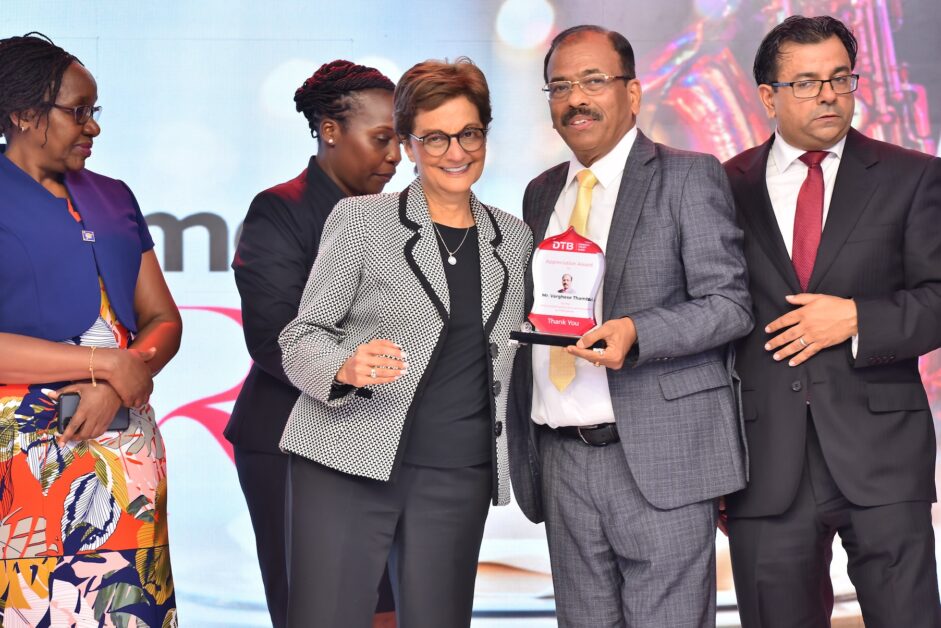
“One of my favourite leadership lessons⏤ let me use this analogy⏤ when you go to the vegetable/fruit shop, you will find oranges or tomatoes, stacked in a pyramid-like shape. Although there is one orange at the top, it is buttressed by several other oranges in layers below it. That means for a leader to shine, you need to have the support of your people. You need to empower, the people below you and they in turn empower those below them and that’s how you all stand tall, working as a team, each playing different roles. This I learnt from my boss from India. That has taught me a lot about empowering people,” he advises.
“If you empower your people properly, then your work is much much easier. For all the 17 years, I took my annual leave in and away from the country. I didn’t have to do micromanagement while on leave. My team would do it. That is why my transition is not by creating a gap. It has been smooth. The board has given me 3 months for transition, but I hardly had to go to the office,” he adds.
He also believes in some kind of tough love when empowering your people.
“It is like teaching kids how to swim, you do not empower them from the shallow end. Sometimes you have to push them into the deep end and let them swallow a little water. That way they will learn faster,” he quips.
Thambi is proud that in his 17 years, he has empowered and nurtured several industry leaders.
“Today, there are over 15 ex-DTB staff at the Exco level in various banks. That really makes me proud.”
Asked about the trends in fraud⏤ that one problem that has dogged the industry⏤ Thambi says, it is a real big threat and sadly the problem doesn’t seem to be on the wane.
“It is not coming down. It will continue. Whatever checks and balances you put in place, fraudsters are more innovative; they go one step ahead of the systems and the controls,” he says.
The other problem is the challenge of insider fraud.
“If you take a deeper look at any fraud in any bank, there is always one party called the insider. Without insider collusion; no fraudster can enter your system physically or digitally,” he reiterates.
Post-retirement plans
Much as his household initially had reservations about him coming to work in Uganda, they had all since fallen in love with the country. Even in retirement, the family has decided they will stay in Uganda.
“Even though I left DTB, my wife and I are not permanently moving out of Uganda, because, my three children are on 3 different continents and Uganda is the midpoint to reach all of them; I need to give more time to them and at the same time,” he says, adding: “I want to do something at my own pace to make sure that retirement is not the end of the road; it is the beginning of the open highway”.
He also has plans to go into farming because he says, there “are a lot of opportunities for agriculture ⏤ agriproducts, export, manufacturing etc⏤ where he wants to make a difference.
“I have some plans on how we can empower the farming community- take small farmers to the next level- small farmers to big farmers. I want to concentrate on how to empower the farmers. What is happening is that the farmers are not getting the right price. The intermediaries are taking all the money and farmers are suffering. The traders, just bring in a little capital and buy the produce and make a killing in profit. That is the kind of thing I want to do,” he says of his retirement plans.
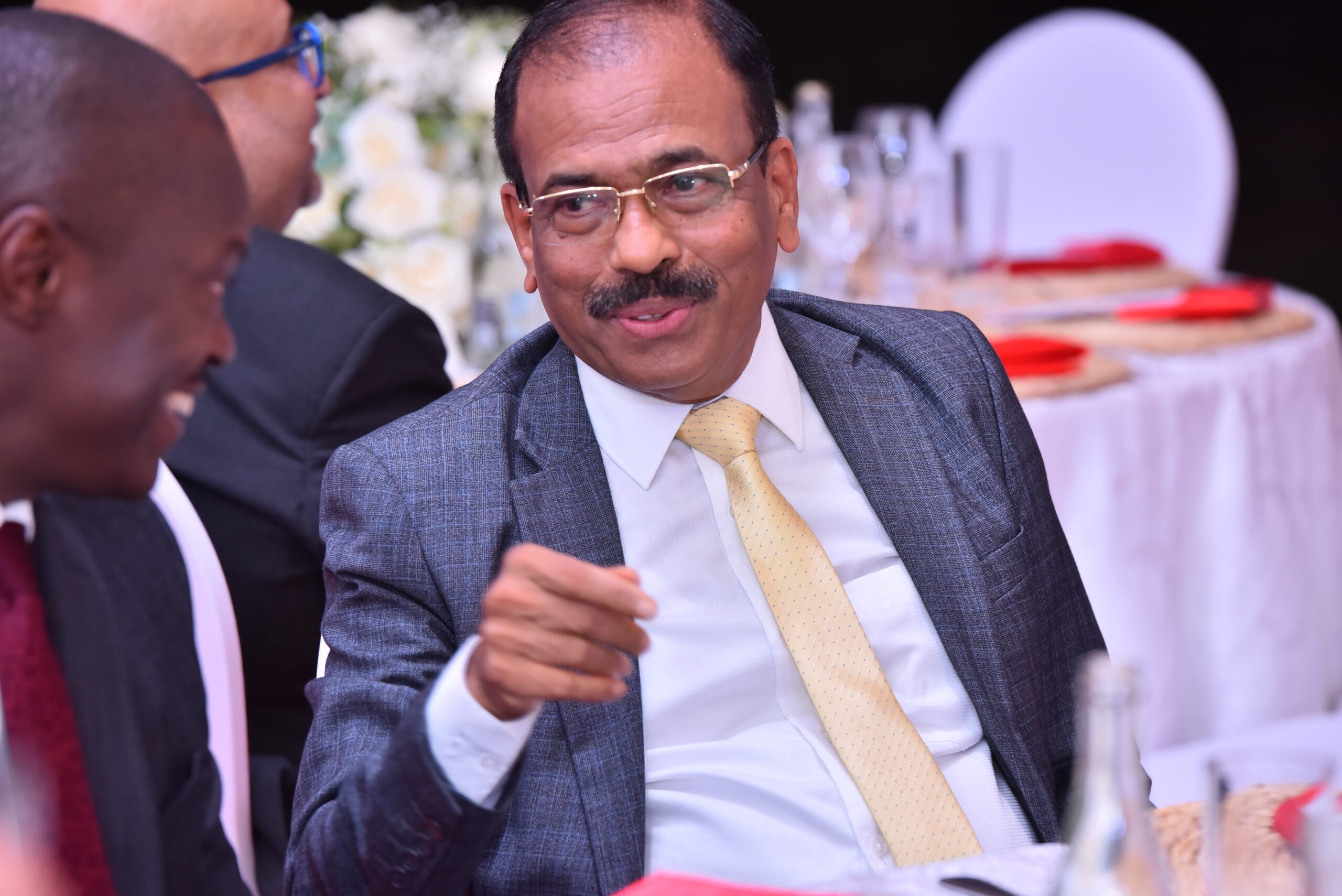
 Letters to My Younger Self: Humphrey Asiimwe—"Ambition Without Purpose Leads Nowhere"
Letters to My Younger Self: Humphrey Asiimwe—"Ambition Without Purpose Leads Nowhere"
